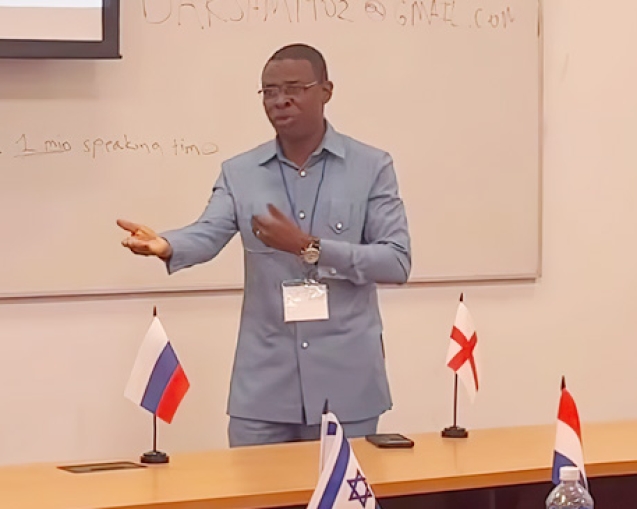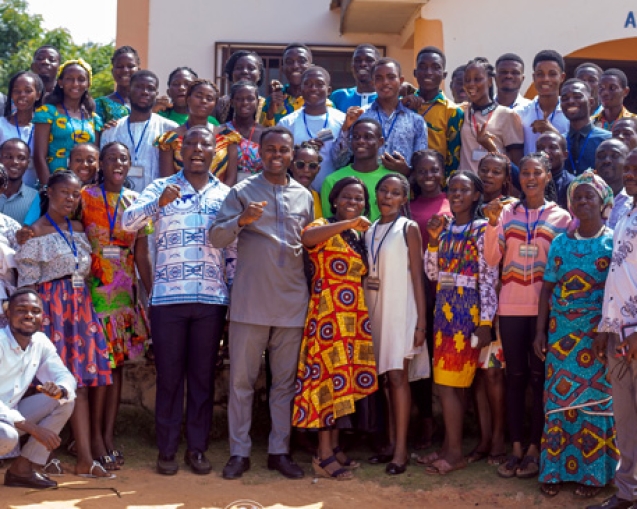Introduction
This article is a response to a misinterpretation of Acts 1:8 that is fast spreading. It is in connection with the Greek word µάρησρες, transliterated martyres, which is the plural form of the genitive noun µάρτσς, transliterated as martys. Teachers of the interpretation in question claim that Act 1:8 means that the disciples will receive “power to die” and not power for witnessing Christ including evangelism. One would hear proponents of such a school of thought opine, “What Acts 1:8 is talking about is not evangelism.” They would say, “The witness here is from the Greek word martys which means martyr.” For these preachers, martys means martyr in the Acts 1:8 context, and from their statements, every other place martys is used in the Bible. Their interpretation is one of the worst biblical hermeneutics Christianity can be confronted with. The interpretation of Acts 1:8 is that disciples of Christ would be empowered for Christian mission. In this very short treatise, I shall show that they do not have enough knowledge of µάρησς (martys) and have seriously misinterpreted Acts 1:8 ignoring the original (ordinary) usage of martys. This interpretation is a false teaching that needs to be repulsed and thwarted.
Background of Acts 1:8: A Call unto Missions
The text of concern reads, “But you will receive power when the Holy Spirit comes on you; and you will be my witnesses in Jerusalem, and in all Judea and Samaria, and to the ends of the earth” (NIV). In the Greek, it is rendered (just for your attention), ἀλλὰ λήµυεζθε δύναµιν ἐπελθόνηος ηοῦ ἁγίοσ πνεύµαηος ἐθ‟ ὑµᾶς, καὶ ἔζεζθέ µοσ µάρτσρες ἔν ηε Ἰεροσζαλὴµ καὶ ἐν πάζῃ ηῇ Ἰοσδαίᾳ καὶ Σαµαρείᾳ καὶ ἕφς ἐζτάηοσ ηῆς γῆς. The immediate background to this text is located in Luke 24. In this chapter, Jesus Christ after his resurrection showed himself to his disciples and commissioned them with these words, “46This is what is written: The Messiah will suffer and rise from the dead on the third day, 47and repentance for forgiveness of sins will be preached in his name to all nations, beginning at Jerusalem. 48You are witnesses [µάρησρες] of these things. 49 I am going to send you what my Father has promised; but stay in the city until you have been clothed with power from on high” (Luke 24:46-49, NIV). This is not to say that other contexts in which the martys is used could be rendered “martyr” in the English language. In this commissioning exhortation, Jesus referred to his disciples as “witnesses”- µάρτσρες to his ministry hence they should go and testify about him. The sequel to Luke continues Evangelist Luke’s account of Jesus’ post-resurrection time with his disciples and his departure message in the sequel bears the same idea. So his charge to them that “I am going to send you what my Father has promised; but stay in the city until you are clothed with power from on high,” is consistent with this charge of Jesus to his disciples: “But you will receive power when the Holy Spirit comes on you” to bear witness or testimony of what they have seen, heard and experience of Jesus Christ. They are to witness or testify of the Gospel everywhere through evangelism, working miracles, signs, and wonders, or missions. This is what we see them doing after the Holy Spirit came upon them at Pentecost. Later on, Ananias who prayed for Paul to gain his sight relayed the same original meaning of µάρτσς (martys) when he exhorted Paul. Paul reported this event thus: Then he said: “The God of our ancestors has chosen you to know his will and to see the Righteous One and to hear words from his mouth. You will be his witness [µάρτσς, martys] to all people of what you have seen and heard. And now what are you waiting for? Get up, be baptized and wash your sins away, calling on his name” (Acts 22:14-16, NIV). How will the meaning stand if the µάρτσρες (martyres) in Luke 24 is to be rendered martyrs? Would it mean that Jesus said “You are martyrs of what is written that “The Messiah will suffer and rise from the dead on the third day and repentance for forgiveness of sins . . .”? Was Jesus in this instance speaking to dead disciples? Rendered this way, it will be complete absurdity! This is what the exponents of the interpretation in question will be saying. How is Acts 22:14-16 going to be understood if µάρτσς (martys) used there is to be rendered martyr? Here, the Lord God was calling Paul into the mission field. Paul did exactly that, bearing witness of the Lord Jesus Christ. In another example, bearing witness or testifying about the resurrection of Christ is the main criterion used to elect an apostle to replace Judas Iscariot. Acts 1:21-22 accounts for it thus, “Therefore it is necessary to choose one of the men who have been with us the whole time the Lord Jesus was living among us, beginning from John’s baptism to the time Jesus was taken up from us. For one of these must become a witness [µάρτσς, martys] with us of his resurrection (NIV). This is also very clear that martys is used to designate one who testifies about Jesus based on what he has seen concerning the ministry of our Lord Jesus Christ. These examples are not exhaustive.
In my consultation with Professor Allan Anderson, a renowned scholar of the University of Birmingham, UK, on the hermeneutics of Acts 1:8, this is what he said, “It is power for witnessing/mission. The connection with martyrdom is because the Greek word for “witness” is the word from where we get the English word ‘martyr’ but this is not its ordinary usage.” This has also been confirmed by Apostle Professor Opoku Onyinah of the Pentecost University, Ghana.
“Martys Does Not Mean Martyr”
R. Magnusson Davis, the historian and founder of the New Matthew Bible Project posits that William Tyndale did a correct translation of martys when he consistently translated it as “witness” in the New Testament. Davis draws attention to three New Testament passages that were modified to hide the primary meaning of martys as “witness”; Acts 22:20; Revelations 2:13 and Revelation 17:6. She blames that on the analogy James Strong drew between martys and martyr. Davis rightly noted that “the original Greek did not carry such an analogical meaning.” The argument alleges that such a meaning arose in the mind of some early Christians long after the Bible was written due to the persecution that the early Christians who witness or testified about Christ faced which led to the death of some of them. The Encyclopedia Britannica which Davis cited explains the development of the word “martyr” from martys in this light. It is right to hold unto the original meaning the Lord Jesus and the writers of the Bible carried across to us in the Scriptures and not to merely use later events to change the ordinary meaning.
Concluding Remarks
Pentecostalism remains the most successful missionary movement in recent times. The reason is not hard to find. The main reason for this is the emphasis on mission and evangelism. The basis for the coming of the Holy Spirit is missions. The missionary fire of Pentecostalism has been burning its way into every place. The Pentecostal Christian tradition has fully embraced and placed importance on Acts 1:8 and indeed the Lord Jesus who promised to empower them to witness to the ends of the Earth, once again proving he is faithful. Pentecostals are entering every place with the Gospel. Pentecostalism is growing and maturing to the glory of the Lord. We must continue to seek the infilling of the Holy Spirit to advance the mission of God. He charged us; “This message of the Kingdom shall be preached in all the earth as a witness and then the end will come …” (Matt. 24:14). This is the reason for the power we receive when the Holy Spirit comes upon us. The Holy Spirit has come upon millions of Christians and empowered them to bear witness to what they have seen, heard, experienced, and known about the Lord Jesus Christ. In this week of Pentecost 2022, and beyond, may there be a renewal of the movement of the Spirit around the world through the baptism in the Holy Spirit for witnessing.
Written by Elder Dr. Stephen Ofotsu Ofoe


















